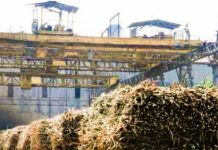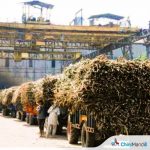Aligning sugar MSP with sugarcane FRP, ethanol production from existing B Heavy Molasses stock in the country and higher price of ethanol procurement from Sugarcane Juice and B Heavy Molasses in the current year- are 3 important focal points for Prakash Naiknavare, MD, National Federation of Cooperative Sugar Factories (NFCSF).
In an exclusive interview with ChiniMandi, he said that the sugar MSP should ideally be at Rs 40 per kg if it is linked with the prevailing sugarcane FRP. This will not only cover the increased production cost of sugar but also give sugar mills sufficient liquidity.
Q. What challenges do you foresee in the sugar industry that need immediate attention and intervention from the Government?
Ans: Firstly, I think that the focus should be on the Minimum Selling Price of Sugar (MSP). The Government should increase the MSP and link it with the ever rising Fair and Remunerative Price (FRP) of sugarcane in the country. This is the need of the hour.
Secondly, the ethanol procurement price for the ethanol produced from Sugarcane Juice / Syrup and B Heavy Molasses for the current ethanol ESY should be announced and it should be higher considering the high input costs. This is long awaited.
Thirdly, the restriction on ethanol production needs to be relaxed as the existing stock of B Heavy Molasses with all the distilleries pan India has not only blocked the huge funds with mounting interest on it but has also posed a potential threat of its explosion and deterioration. This should be allowed soon.
Q. Given the higher than expected sugar production. Do you think that the Government should allow sugar exports? Are you representing this to the Government?
Ans: In my opinion, the improved sugar production numbers are good enough for restoring the EBP programme which is of national importance in the short term. While in the later part of the 2024-25 Sugar Season, if higher sugar production is seen in the light of favourable weather forecasts, the excess sugar inventory could be allowed to be flushed out via exports because the major importing countries are located in the Asian Sub-continent giving India a logistic advantage.
Q. Do you think that the Government should increase sugar MSP? What should be the quantum of increase which should offset higher cane FRP ensuring sufficient liquidity of the mills?
Ans: The Dr. Rangarajan Committee’s recommendation accepted by the Government of India has linked sugar MSP with that of FRP, amongst other suggestions. The Government has accepted the Committee’s recommendation of releasing 75% of revenue in the form of sugarcane price. Inter-alia if one does the reverse calculation, the sugar MSP computes to Rs. 40 per kg. This will not only cover the increased production cost of sugar but also give sugar mills sufficient liquidity.
Q. As we are nearing the crushing season. What is your outlook on sugar prices?
Ans: In view, the domestic sugar prices in India are driven by 2 factors viz. Fundamentals and Sentimental, the fundamentals are already signalling optimum sugar availability in the country while the conclusion of sugar season synchronized with heated summer demand addresses sentimental spike.
Thus, in a nutshell, the domestic sugar would remain range bound between Rs. 35 per kg (S-Grade) and Rs. 37-38 per kg (M-Grade).
Q. At the start of the season, there was a feeling that Maharashtra would produce less sugar due to less rain. However, sugar production is higher than expected. According to you, what should be done to improve the accuracy of sugar production estimates, which is vital for policy consistency?
Ans: In total agreement that there is a need to achieve accuracy of sugar/sugarcane production estimates. I feel that digitization involving individual sugarcane growing farmers via ERP through an API system would bring about precision in accurate estimation.
Q. The Government’s next big focus is towards the production of CBG, Green Hydrogen etc. What role does your Association play in motivating your member factories to produce Green Hydrogen in the future? Any roadmap that you can discuss?
Ans: We, at National Coop. Sugar Federation has a strong Techno-Commercial Consultancy wing consisting of subject matter specialists pooled across the country advising on the latest updated technology driven value-added downstream products to its clients viz. sugar mills across India. We already have a roadmap encompassing CGB, Green Hydrogen, bio-plastics etc.
Q. How do you perceive the role of biofuels in the transition towards a low-carbon economy, and what barriers need to be addressed to accelerate their adoption?
Ans: The role of biofuels will undoubtedly be a game changer in the country’s sugar/bio-energy sector. The main barrier in my opinion is that of technology transfer and matching fiscal incentives. If both these barriers are overcome, then the country’s sugar/bio-energy sector will flourish rapidly, helping itself to be self-sustaining and not dependent on any outside support.












